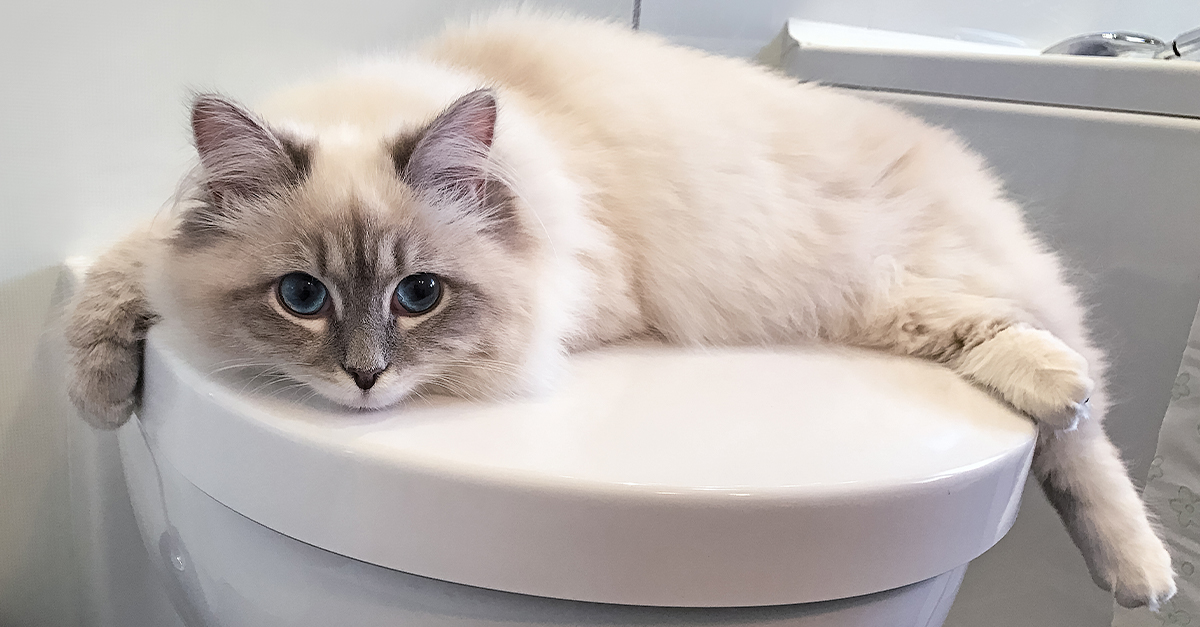The content which follows involving Can You Flush Cat Poo or Litter Down the Toilet? is seriously informative. Check it out for your own benefit and figure out what you think of it.

Intro
As cat owners, it's important to bear in mind just how we deal with our feline pals' waste. While it might seem practical to flush feline poop down the toilet, this practice can have harmful consequences for both the environment and human wellness.
Alternatives to Flushing
The good news is, there are more secure and a lot more accountable ways to dispose of pet cat poop. Think about the following choices:
1. Scoop and Dispose in Trash
The most common technique of throwing away cat poop is to scoop it right into a biodegradable bag and toss it in the trash. Make sure to use a specialized clutter scoop and take care of the waste quickly.
2. Use Biodegradable Litter
Select eco-friendly cat litter made from products such as corn or wheat. These trashes are environmentally friendly and can be safely thrown away in the trash.
3. Bury in the Yard
If you have a yard, consider burying pet cat waste in a designated location far from vegetable gardens and water sources. Make sure to dig deep adequate to avoid contamination of groundwater.
4. Set Up a Pet Waste Disposal System
Purchase a family pet waste disposal system particularly developed for cat waste. These systems make use of enzymes to break down the waste, lowering smell and environmental impact.
Wellness Risks
Along with environmental concerns, purging feline waste can also present health and wellness threats to people. Cat feces might include Toxoplasma gondii, a bloodsucker that can cause toxoplasmosis-- a possibly severe ailment, particularly for expectant women and people with damaged immune systems.
Ecological Impact
Purging cat poop introduces harmful microorganisms and bloodsuckers right into the supply of water, presenting a substantial risk to aquatic environments. These impurities can adversely impact marine life and compromise water quality.
Conclusion
Responsible animal ownership extends beyond providing food and shelter-- it also entails correct waste monitoring. By avoiding flushing cat poop down the toilet and going with different disposal techniques, we can lessen our ecological impact and protect human wellness.
Why You Should Never Flush Cat Poop Down the Toilet
A rose by any other name might smell as sweet, but not all poop is created equal. Toilets, and our sewage systems, are designed for human excrement, not animal waste. It might seem like it couldn’t hurt to toss cat feces into the loo, but it’s not a good idea to flush cat poop in the toilet.
First and foremost, assuming your cat uses a litter box, any waste is going to have litter on it. And even the smallest amount of litter can wreak havoc on plumbing.
Over time, small amounts build up, filling up your septic system. Most litter sold today is clumping; it is made from a type of clay that hardens when it gets wet. Ever tried to scrape old clumps from the bottom of a litter box? You know just how cement-hard it can get!
Now imagine just a small clump of that stuck in your pipes. A simple de-clogger like Drano isn’t going to cut it. And that means it’s going to cost you big time to fix it.
Parasitic Contamination
Believe it or not, your healthy kitty may be harboring a nasty parasite. Only cats excrete Toxoplasma in their feces. Yet it rarely causes serious health issues in the cats that are infected. Most people will be fine too if infected. Only pregnant women and people with compromised immune systems are at risk. (If you’ve ever heard how women who are expecting are excused from litter cleaning duty, Toxoplasma is why.)
But other animals may have a problem if infected with the parasite. And human water treatment systems aren’t designed to handle it. As a result, the systems don’t remove the parasite before discharging wastewater into local waterways. Fish, shellfish, and other marine life — otters in particular — are susceptible to toxoplasma. If exposed, most will end up with brain damage and many will die.
Depending on the species of fish, they may end up on someone’s fish hook and, ultimately on someone’s dinner plate. If that someone has a chronic illness, they’re at risk.
Skip the Toilet Training
We know there are folks out there who like to toilet train their cats. And we give them props, it takes a lot of work. But thanks to the toxoplasma, it’s not a good idea.

As an avid person who reads on Don’t flush cat feces down the toilet, I figured sharing that excerpt was essential. Are you aware of anybody else who is curious about the niche? Take a moment to promote it. I praise you for your time. Please stop by our website back soon.
Request Service